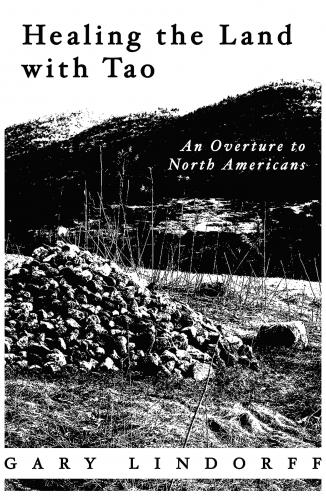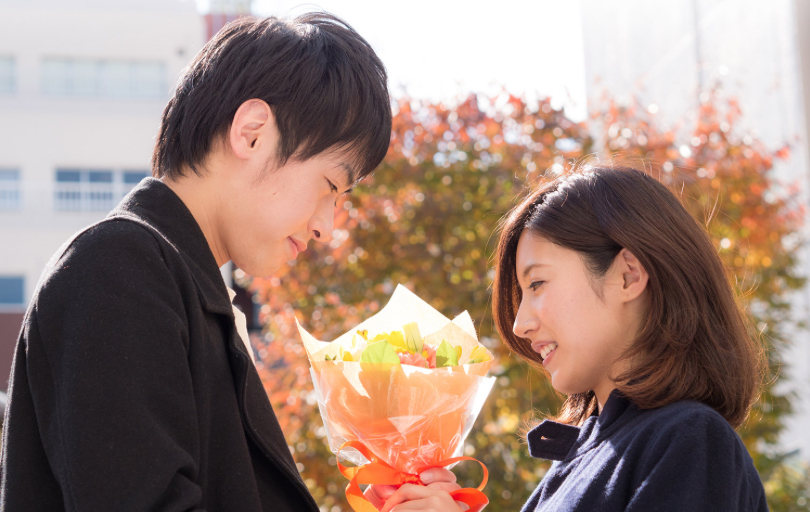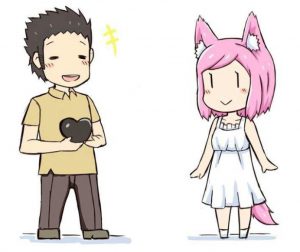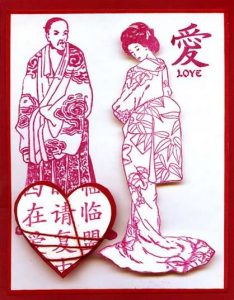
“We are like quantum physicists, acknowledging that our presence, or our consciousness, can, and does change the reality of everything that we interact with. But poets and dreamers go way beyond that: We want to affect the great experiment. We go out of our way to change it because we yearn for it to succeed! … We have learned that when we look at the world, it looks back…. We have learned that when we step into the world, the energy of the world does more than just support us, it gathers ecstatically around our feet, it pulls and pushes us to interact and engage and feel.” - Gary Lindorff
I studied metaphysics as part of my degree program in philosophy. Comparative religions, existentialism got some air time, with token nods to classical ancient philosophy, all of which added to a cornucopia of possible, if implausibly and highly impractical, world views. In my youthful impatience, enamored as I was with post-modernism and the miraculous leaps of technology I was witnessing, I found this extremely distracting, in fact downright annoying, since they all borrowed much from the prevailing mythologies of long expired physical empires and intellectual traditions. I judged that unfortunately, as building blocks for the formal architecture of Western thought, they ultimately lay a much too durable foundation for the centuries of cul-de-sac erudition and tedious sophistry which characterizes much of formal philosophical inquiry.
How could I be so dismissive? Well, I was young and impressionable and fell in with a bad crowd, hence discovered the 20th Century tools which would undermine the entire basis for asking the “big questions”, a methodology which smugly rendered the entire pursuit of philosophical understanding henceforth a fool’s quest. This was the suite of WMDs known among what I would now consider the anarchists of modern philosophy, the ordinary language analysis storm troopers. These were the brash, anti-establishment butchers of speculative and normative traditions from Plato to Russell, Aristotle to Whitehead, Aquinas to Kant, Hegel, Hume, Locke, and Descartes. All these silly old fools were targets of a faddish but no less galvanizing snideness and smug derision, they were the laughingstock of a rip-roaring dialectical rodeo, purveyors of the philosophical joke that went on too long, creators of reams and reams of mind-numbing argumentation and treatises, producing one punch line after another, an endless rolling carnival which had ultimately become dated and irrelevant and frankly not any longer very entertaining.
I was so cloistered in this cult that at university, I was totally unaware of Noam Chomsky’s political work. He was merely a gateway drug for the work of J.L. Austin and Ludwig Wittgenstein, and their mechanistic mauling and demolition of philosophical problems using language analysis. Talk about taking the creative excitement out of philosophy and turning it into a crossword puzzle or a good game of Scrabble! But infantry soldiers don’t debate political systems. They shoot to kill.
I eventually recovered. Now I’ve settled into merely being a materialist. That’s not ‘materialistic’. I’m far from that, trust me. But I live and function primarily — we’re talking 99.9999% — in a material world. In my crucial formative years, science was with exponential leaps proving its potency. Relativism — modulated by logical positivism — was the new black. Empiricism won the day. Computers would eventually eliminate grey with the efficacy of binary. Now the God Particle joins the other billiard balls on the cosmic pool table and blockchain is even redefining what money is. I should regress to reading Tarot cards? I didn’t in the least miss the rabbits foot I had lost as a boy. Now I had a iPad.
Yep, I’m hooked. Smitten. Sold. Even if it doesn’t produce a very charming death bed scene, I’ll go with science over seance. Magic and miracles are for the desultory denialists and the leisurely lulled.
So . . .
This is what I brought to the game as I began to work my way through
Healing the Land with Tao, looking for places to insert my toes and outcroppings for my fingertips, so I could begin the healing climb. I wasn’t even sure I wanted to do this. Was there a view at the top?
But hallelujah! Because Gary Lindorff is so lucid, his writing so accessible, much to my surprise and relief I found I didn’t need any special skills, footholds and finger-friendly features, much less safety nets or rappeling gear.
Frankly, the far-reaching explorations in this book arrive on their own terms, self-packaged, user-friendly, turnkey savvy. Because the “things” in the nature of things are syllogistically and ultimately “personal” — if I can use such a mundane word — and whether we choose to ignore them or not, most of what he talks about constitutes with or without our acknowledgement, the entire foundation for that epic collection of experiences we call ‘life’.
There’s a great quote that sums up what I’m trying to say here. It opens Chapter 5:
“Where are we? We are in the middle world. Is it the same place for you as it is for me?”
This is fascinating on a number of levels. The second question, of course, alludes to the essential epistemological quandary.
Yet in the framework of the Taoist perspective we are prompted to ask: Despite all of the hand-wringing by philosophers that has transpired over the centuries over this, is this really something that needs to be resolved? While it’s an intrinsic component — some might say consuming pathology — of Western intellectual tradition to leave no problem unsolved, no question unanswered, such obsessive-compulsive behavior has often produced more conceptual havoc, confusion and directionless daydreaming, than comforting, satisfying results.
Because if there is certainty about anything, it is about this: Ultimately, this question is unsolvable and even modeling its unsolvability results in an incomprehensible formulation. Such an overarching analysis may indeed be entirely correct. But it still remains incomprehensible. Such are the limitations of the human mind. I think of my cat, who would prefer I ball up pages containing the mathematics of general relativity so he could chase them across our polished wood floor. There’s an analog in that example that applies neatly to human beings, if we’re humble enough to admit it into our normally pompous, self-congratulatory view of ourselves, and embrace it for the peace of mind it ultimately could offer. Real Buddhists get this. Taoists too.
So I accept that the world that Gary Lindorff lives in and experiences is the same world I live in and experience, though I may not see and experience it that way.
Chapter 5 ends with this:
“The tonal is something we all share; nothing can be gained by brushing it aside unless it has become dangerous and toxic to our well-being. It is the great collective dream that grounds us, it is the ‘here’ we call home. But one’s experience of the nagual – that is unique.”
When discussing a couplet by Basho, Lindorff again delves into the impenetrable nature of perceptual ambiguities:
“It is as if an ineffable fragrance were rising from the couplet and quietly flowing on. . . . This mysterious fragrance reminds us that nobody experiences anything exactly the same. It is ineffable because it is indefinable, and we don’t want to define it, as then we are trying to objectify or package it.”
Oh how we objectify and package — and with vile insensitivity commodify — everything now. Supposedly nothing should be left to chance or interpretation. What kind of out-of-control world would it be were human imagination to run free, the boundaries of quantization and digitization penetrated and pierced by purity of spirit and innocence of intention?
Oh yes! Sheer chaos! (Or so my university mentors would scream.)
I’m trapped between dualities which shouldn’t — maybe don’t — a priori exist.
My flippant gravitas says I should walk the straight and narrow, gaze unwavering as I walk the rigid dialectic plank of logical positivism. Admittedly, this is harsh irony for someone who doesn’t just like to get outside the box, but thrives on turning back on it and dousing it with napalm. On the other hand, my quixotic side indeed prompts me to appreciate such poetic and abstruse musings as we find in
Healing the Land with Tao, attaching to them gracious vindication for the ontological bipolarity that has engulfed me over the years — oh forgive me, all who’ve endured my ponderous pontifications and apocalyptic opuses — to abandon cold cynicism and surrender to the seduction of mysteries I cannot access, much less comprehend and resolve: Just leap and learn to fly. Or embrace the certainty of gravity in a world so anxious and insecure behind its mask of arrogant stolidity.
After all . . .
Who am I to look a gift horse in the mouth? How humbling it truly is to peer into Gary Lindorff’s world, to vicariously — perhaps several layers removed — share with him a reality to which I’m deaf and blind, therefore rendered too myopic and mute to intelligently analyze and discuss.
Then again . . .
Why should I be so gracious? Shouldn’t I just snarl and sneer, make some snarky aside, and get on with the business of living amongst vertically-mobile beings armed with smart phones, steadily making improvements on self-driving cars, taking selfies — soon to be in 3-D? — and dumping them into the streaming deluge of irrelevance which keeps most of us so amazed with ourselves that we no longer have a need to appreciate a flower, a tree, a sunset, a smile, a child, an invisible voice whispering words of wisdom and warning, comfort and distress, light and dark, yin and yang? A voice as lucid as it is inscrutable, as certain as it is ambiguous and suspect, as candid as it is taciturn?
Gary Lindorff can hear the voices in the wind, the secret histories of the trees, the song in the earth, all that fulfills the promise of that entire universe created in Seven Days, so one trending mythology would have it.
Words. Are we talking about enchantment . . . delusion . . . fantasy . . . actualization . . . transubstantiation . . . an alchemy that transforms the soul, an amalgamation? Does the right word make any difference?
Here’s a word which is not, cannot, nor should it ever be resolved, fixed or finalized: Possible.
That alludes to the essential reward to me personally for reading this fine work by Gary Lindorff.
As a logical positivist, an empiricist, a pragmatist, I can only be grateful that these afflictions have not entirely closed me off to what is possible.
Because isn’t possibility that vast expanse into which we grow as humans, becoming gradually, irreversibly what we never imagined we could become?
Gary writes:
“Lucidity is the ability to enter into consciousness as a dimension.”
What does that mean? Does it mean the same to you as it does to me?
Can we know? Can we prove that knowing is some end-all, even necessary? Some questions will never be answered. At the same time, some answers may be orphaned, bereft of questions. We may already have all of the answers. We may have too many answers. The world the human mind fashions is brimming with answers. Some sing. Some dance. Some just quietly inform all that we experience.
“Let me suggest that a masterful haiku is a super-metaphor. We are given what we need to make the leap. When we encounter a super-metaphor in a poem or as a poem (whether by Rilke, Basho or Emily Dickinson) it reboots our imagination, tricking the brain into taking a leap of faith from what it already knows to what the soul knows, and this benefits the brain in the same way that advanced yoga benefits the body. If we are lucky, that experience is ecstatic.”
Intentionally or not, Gary Lindorff has created a loosely structured operating manual for the soul.
We’ll all get different messages and meanings. We will benefit disproportionately. I’m admittedly not very well-prepared for a work of such spiritual depth and profundity, such bold, a priori, ecstatic leaps. My materialist world view puts the best aspects of that collection of energy that is John Rachel, in solitary confinement. The food is pretty lousy in here, the walls are gun-metal gray, and I don’t get much to read. But if I could choose only one book to help break the chains of my mental and spiritual incarceration, it would be
Healing the Land with Tao.
In a word, Gary Lindorff’s book is brilliant. It made an honest man out of a logical positivist like me.
How is that for the healing power of the Tao?
[ This originated at the author's personal website . . .
http://jdrachel.com ]
Book Review: “Healing the Land with Tao” by Gary Lindorff

 weddings, funerals, graduations, anniversaries, birthdays, Christmas, Mother's Day, Father's Day -- means hefty dividends for anyone heavily invested in industries making gift-wrapping, ribbons and bows.
weddings, funerals, graduations, anniversaries, birthdays, Christmas, Mother's Day, Father's Day -- means hefty dividends for anyone heavily invested in industries making gift-wrapping, ribbons and bows.
 Not that many people worry about the insulinary efficiency of their pancreas on either Valentines or White Day. That would probably be true just about anywhere in the world.
Not that many people worry about the insulinary efficiency of their pancreas on either Valentines or White Day. That would probably be true just about anywhere in the world.



